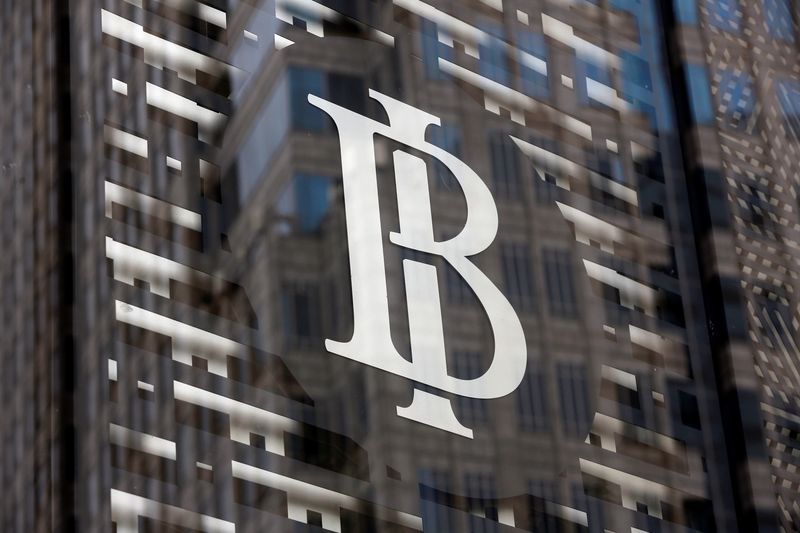By Gayatri Suroyo and Stefanno Sulaiman
JAKARTA (Reuters) - Indonesia's central bank on Wednesday held interest rates steady, as expected, preferring to focus on stabilizing the rupiah before possibly easing rates later this year.
Bank Indonesia (BI) kept the benchmark 7-day reverse repurchase rate at 6.25%, where it has been since April, as expected by all 30 economists polled by Reuters.
BI also kept the overnight deposit facility and lending facility rates unchanged at 5.50% and 7%, respectively.
BI continues to see room to cut rates in the fourth quarter, while the focus on the current quarter will be on supporting a further strengthening of the rupiah exchange rate against the U.S. dollar, Governor Perry Warjiyo told a press conference.
"A strong rupiah is good for Indonesian economy. Stronger rupiah makes prices cheaper, especially for food prices and support for low inflation through imported inflation," Warjiyo said.
Inflation has been within the central bank's 1.5% to 3.5% target range since the middle of 2023, and it eased to 2.13% last month, the lowest since February 2022.
In April, BI surprised markets with a rate hike to support the rupiah, which had fallen to four-year lows against the U.S. dollar as risk aversion sparked by geopolitical concerns and uncertainty about U.S. interest rates triggered capital outflows.
The rupiah has strengthened by about 5% this month, and is trading near its strongest level this year, as the U.S. dollar softens on expectations that the Federal Reserve will cut rates in September.
Warjiyo said BI's baseline expectation is for the Fed to cut rates twice this year, and another three times in 2025.
Some economists expect BI to wait for a Fed cut before it starts policy easing of its own.
"Our view remains for the BI to commence monetary policy easing with a 25-basis-point (bps) rate cut in the fourth quarter, after the Fed cuts," Brian Lee, an economist with Maybank Investment Banking Group.
"Due to the BI’s focus on rupiah stability, we think the Indonesian central bank will, for now, want to lean against any risk of a resurgence in dollar strength and U.S. yields,"

The rupiah was trading at 15,480 per dollar on Wednesday, 0.4% weaker versus a day earlier where it hit its best level since the beginning of the year.
Some central banks have started easing policy, including in the Philippines and New Zealand. The Bank of Thailand on Wednesday held its key interest rate steady.